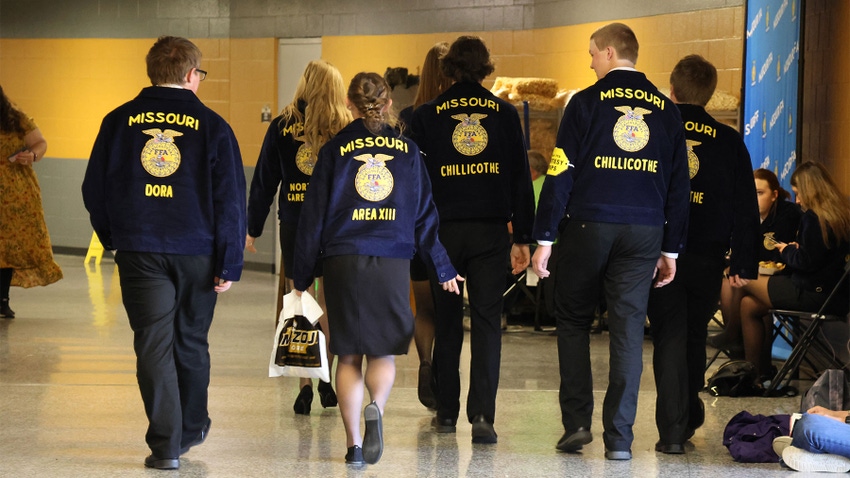
The next generation is incorporating artificial intelligence into school and work, but does this tool produce accurate information when it comes to agriculture, and more precisely FFA?
Admittedly, I’m not a fan of AI-powered writing assistants — those programs that auto-generate content to fill newsfeeds, blogs and social media. Obviously, these tools put a strain on my vocational viability, with claims of producing content quicker, more accurately and simply better. After all, I consider myself the AI of Missouri Ruralist.
But the next generation is embarking on a new era in communication. With so many online searches and AI-generated content, it is important that the information out there is trustworthy, so I put it to the test. To my surprise, the popular ChatGPT did a good job on the description of FFA.
From the prompt “What is the FFA?” came the following:
“The FFA, or Future Farmers of America, is a national youth organization in the United States that focuses on agricultural education. It was founded in 1928 as the ‘Future Farmers of America’ and has since evolved into the ‘National FFA Organization’ to reflect the broadening scope of agricultural education.
“The FFA aims to prepare members for leadership and careers in the science, business and technology of agriculture through hands-on experiences, competitions and leadership development activities. Members typically participate in activities such as raising animals, participating in agricultural competitions, attending leadership conferences and engaging in community service projects.
“The organization is structured at the local, state and national levels, with students from middle school through college participating in FFA programs. The FFA’s iconic blue corduroy jackets, emblazoned with the FFA emblem, are a symbol of the organization and its members’ dedication to agricultural education and leadership.”
OK, you have to admit that was pretty spot on. And that last sentence, “The FFA’s iconic blue corduroy jackets, emblazoned with the FFA emblem, are a symbol of the organization and its members’ dedication to agricultural education and leadership,” I’d stand up and applaud that description any day.
It was a pretty good first impression. So, I decided to push a little harder, asking it for “Lessons learned in the FFA.”
The result? ChatGPT provided me a Top 10 list:
1. Leadership skills. FFA emphasizes the development of leadership skills through various activities such as public speaking, parliamentary procedure and event planning.
2. Agricultural knowledge. Members gain a deep understanding of agriculture, including topics such as crop science, animal husbandry, agricultural economics and sustainable farming practices.
3. Personal growth. FFA encourages personal growth and responsibility through hands-on experiences like caring for animals, managing agricultural projects and participating in community service.
4. Teamwork and collaboration. Members learn the value of teamwork and collaboration through group projects, competitions and cooperative activities with fellow FFA members.
5. Networking opportunities. FFA provides networking opportunities with industry professionals, educators and other students interested in agriculture, which can lead to future career connections and opportunities.
6. Career development. FFA offers career development events and resources to help members explore potential careers in agriculture and related fields.
7. Character building. The organization promotes values such as integrity, responsibility and dedication, fostering character development among its members.
8. Community involvement. FFA encourages members to be actively involved in their communities through service projects, outreach initiatives and educational programs.
9. Entrepreneurship. Members may learn about entrepreneurship through projects such as running a small business, managing finances and marketing agricultural products.
10. Confidence building. Participation in FFA activities helps build confidence and self-esteem through achievements, public presentations and overcoming challenges.
I’d like to think that ChatGPT scoured the internet and found my writings on the FFA and those of my fellow ag journalists to come up with the above list. We’ve been championing the FFA for decades.
While for me, AI-writing tools will never generate personal voices in articles, blogs or social media, I am glad at least this one provides the next generation looking at agriculture education and FFA with the right information.
Read more about:
FFAAbout the Author(s)
You May Also Like






